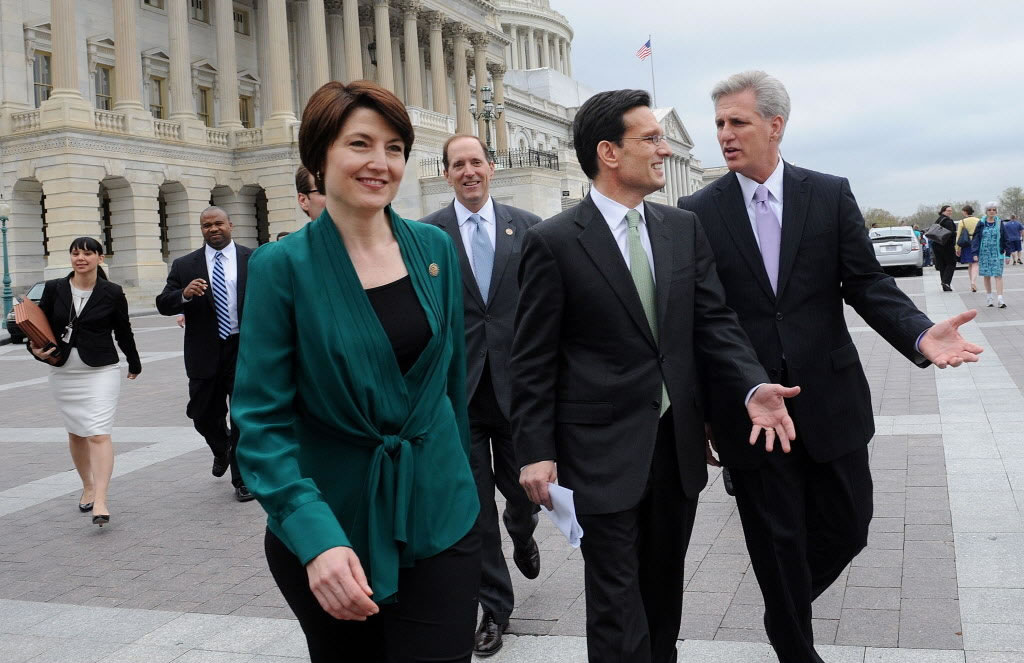Pro-Business Legislative Efforts Bear Little Fruit

House Republicans and Senate Democrats are offering dueling tax cut bills for small businesses, and “neither has a snowball’s chance in hell of being passed,” according to Douglas Holtz-Eakin, who in 2008 advised Republican presidential candidate John McCain on economic policy.
Each bill is intended to energize job creation by small businesses; however, they take distinctly different approaches. The Republican Bill (also known as the Small Business Tax Cut Act of 2012, or H.R. 9) provides a 20 percent across-the-board cut in the form of a tax credit to any business with fewer than 500 employees. The companies receiving the tax break are not required to take any specific actions such as hiring staff or making capital investments in return.
Republicans view such requirements as treading in territory that rightly belongs to the business owners.
“What the bill will do is it - bottom line - will put more revenues, more money into the hands of small business owners so that they can reinvest those funds to retain and create more jobs and to grow their business. Plain and simple,” said Eric Cantor, House Majority Leader, in his introduction of the bill.
The Fiscal Times calls this bill a “tax break that favors the rich,” because 49 percent of the benefits will accrue to people with gross incomes of $1 million or more.
Additionally, the Fiscal Times reports, the impact on job development is minimal:
“According to a Treasury study, the bulk of small businesses don’t have any employees at all. Of 19 million such businesses in 2007, fewer than 5 million had employees. Many are what are called pass-through entities that exist largely on paper as tax avoidance devices for the wealthy,” wrote former Reagan economic advisor Bruce Bartlett in the web magazine.
The non-partisan Congressional Budget Office agrees that the bill will do little to stimulate new employment, but notes that it will add substantially to the deficit, at a cost of at least $46 billion.
H.R. 9 passed the House Ways and Means Committee last week on a party-line vote. And while it is expected to win the day in the Republican controlled House, it has little chance to succeed in the Democratic controlled Senate.
According to Bloomberg BusinessWeek, “Democrats on the panel criticized the bill for not tying the tax break to hiring or investment, and their objections signaled that the measure may not fare well in the Democratic- controlled Senate as currently written.”
The Democratic proposal provides a 10 percent tax cut for those small businesses that expand their payroll. The Senate bill would also revive for 2012 the ability of companies to write off 100 percent of capital investments.
"The House Republican proposal is neither focused on true small businesses, nor does it make the tax cut dependent at all on the company doing any hiring," said Senator Charles Schumer (D-NY).
But tax experts argue that the Senate bill is too complex to administer. “Some of the firms that get a tax break here would be firms that would have increased their payroll anyway,” said Alan Viard, a resident scholar at the American Enterprise Institute, a Washington group that favors strengthening free enterprise.
The Democratic bill comes with a $26 billion price tag, and is called a “temporary tax cut” by its sponsors. The Republican bill is a one-year measure as well.
Meanwhile, the Senate last week blocked an attempt by Democrats to eliminate tax credits for oil companies that are designed to encourage development of new energy resources.
“Right now, the biggest oil companies are raking in record profits,” President Obama said defending the bill. “On top of these record profits, oil companies are also getting billions a year in taxpayer subsidies.”
Republicans saw it differently, defending the bill’s defeat as an effort to keep incentives in place that would result in more drilling and more oil available in the United States.
In response to Democratic efforts to end the subsidies, Senate Minority Leader Mitch McConnell said, “Their brilliant plan on how to deal with gas prices: raise taxes on energy companies.”
Three tax-related bills for business with zero results. Your tax dollars at work.




